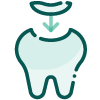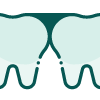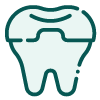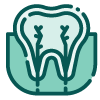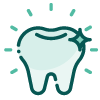From time to time, teeth may need to be extracted (pulled out/removed). This may be necessary if there is significant decay, crowding, or severe damage due to trauma or disease. In some cases, baby teeth may need to be extracted if they are not falling out on their own or particular teeth may be extracted for orthodontic purposes.
Tooth Extraction
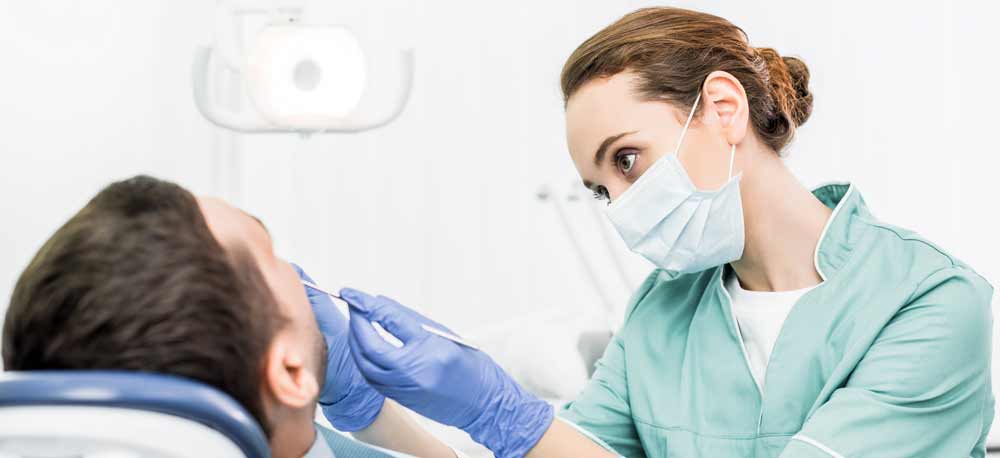
Wisdom teeth
These teeth usually appear around the late teenage years but sometimes even later. Today, people often have jaws that are too small for all 32 teeth – most people have room for around 28 teeth. If you already have 28 healthy teeth, there may not be enough room for your wisdom teeth to come through properly and so in certain cases, we may recommend that they be extracted.
Wisdom teeth are typically removed if they are causing repeated infection, pain or discomfort, if they are decayed (these teeth can be difficult to keep clean), if they are stuck in the jaw (impacted) or if they will cause crowding. Problems with wisdom teeth will usually be apparent during a regular exam or with an x-ray but also feel free to speak to a member of our team if you are experiencing any pain or discomfort and we will advise you if the extraction of your wisdom teeth is recommended. For difficult extractions, we will refer you to see an oral surgeon.
If you need to have a tooth/teeth extracted…
We will first numb the area to prevent discomfort. You will feel pressure while you tooth is being removed, but you should not be in any pain. In simple cases, your tooth will be taken out in one piece. However, in cases where the tooth is broken down or impacted (growing in the wrong direction), we may need to widen the hole and reduce the tooth to a number of smaller pieces (surgical).
Following extraction, it is normal to experience some pain, swelling and minor bleeding. You will be advised on how to manage these anticipated conditions. For pain, an over-the-counter ibuprofen pain reliever is normally sufficient to reduce pain and swelling (unless contra-indicated). For bleeding, we will give you some gauze pieces to place on the wound with pressure for 10 minutes. We will ensure that you have stopped bleeding prior to leaving our clinic.
If you follow these key points of advice for after-care, you can ease and minimise any discomfort and promote healing:
Advice after extraction
- Avoid excessive exercise and strenuous activity for the rest of the day.
- Do not drink anything hot or alcoholic for three to four hours after extraction. Failure to comply with these instructions may re-start bleeding.
- Do not smoke a cigarette for at least 24 hours after extraction as this reduces healing and increases the possibility of a dry socket.
- Do not rinse your mouth out excessively on the same day as the extraction. Excessive rinsing encourages bleeding and it may disturb any clot that has formed.
- You are recommended to eat soft food on the opposite side of your mouth on the day of extraction.
- You may feel sharp edges in the socket with your tongue and small fragments of bone may work loose. This is normal.
- If you have been given antibiotics you must finish the course even if the pain and/or swelling has disappeared.
Day after extraction and for one week thereafter
- It is very important that you keep your mouth as clean as possible. Rinse out your
 mouth after every meal with warm water and salt (1 teaspoon salt in 1 glass water). This will promote faster and cleaner healing.
mouth after every meal with warm water and salt (1 teaspoon salt in 1 glass water). This will promote faster and cleaner healing. - If severe pain starts two to three days after the extraction it probably means that you have a DRY SOCKET. This is a very painful condition indicating delayed healing. There is an increased risk of this happening if you smoke or are taking the oral contraceptive pill.
- Call us to make an appointment
- We will place a dressing in the socket
- This should then resolve after two weeks
If excessive bleeding occurs:
- Use gauze (cotton wool or a handkerchief) to make a firm pad an inch thick. Place the pad onto the socket. Bite firmly to compress the pad for fifteen to twenty minutes without disturbing.
- It is advisable to remain in a seated position. Do not lie down or panic as this will increase the blood supply to the head and make the bleeding more pronounced.
- If your efforts are unsuccessful after 2 to 3 hours please contact us.
Any questions?
We are experienced and sympathetic in dealing with each patient’s anxieties and pride ourselves on developing a personal relationship with our patients.



